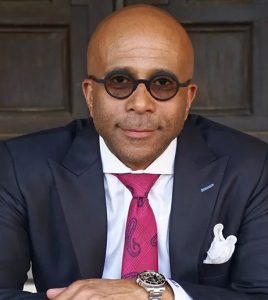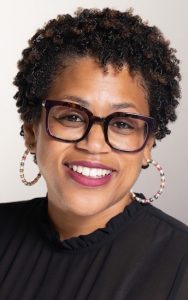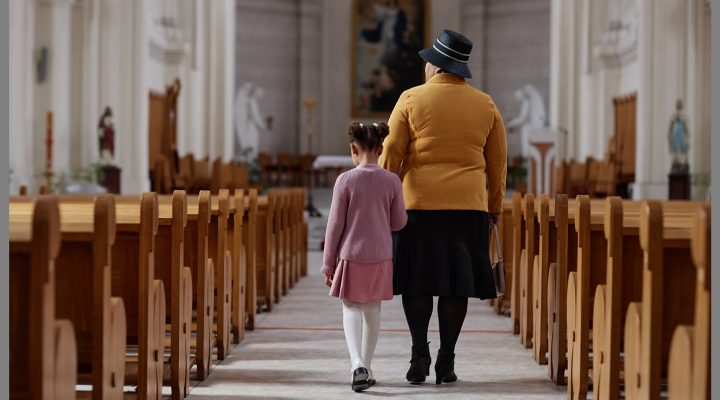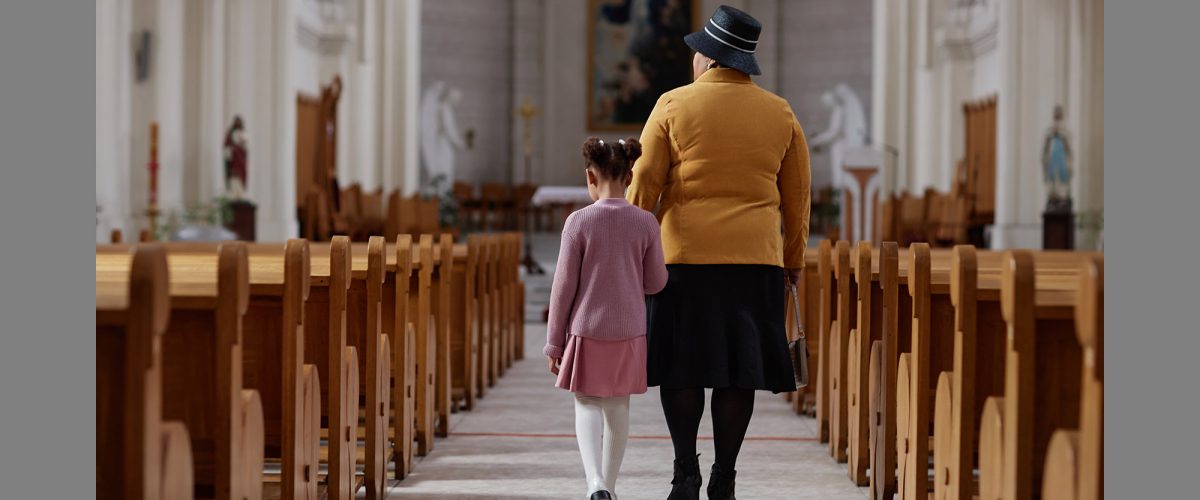The assumption that Black Americans are highly religious, and almost universally Christian, overlooks the theological and ideological complexity of the African American community, Anthony Pinn said on the Baptist Joint Committee for Religious Liberty’s “Respecting Religion” podcast.
But a clearer understanding of the diversity of the community is emerging as the leaders of multiple faith and nonreligious groups begin to dialogue on shared racial, political and social challenges, said Pinn, professor of humanities at Rice University, director of Rice’s Center for Engaged Research and Collaborative Learning, and director of research at the Institute for Humanist Studies in Washington, D.C.

Anthony Pinn
“What is happening is a greater awareness of the complexities of the religious landscape of Black America,” he said. “It’s always been diverse. Nonbelievers have always existed. There’s always been this complexity. We’ve just been slow to recognize it. We have looked at Black communities and tried to understand them only through the lens of the Christian faith.”
Pinn was joined on the webinar by Sabrina Dent, director of the BJC Center for Faith, Justice and Reconciliation and co-author of African Americans and Religious Freedom: New Perspectives for Congregations and Communities. BJC General Counsel Holly Hollman moderated the discussion focused on the shifting cultural and religious dynamics in African American communities.
Last year, Dent and Pinn organized “(Dis)Belief: Reimagining the Religious Landscape of Black America” to help Black Christians and unbelievers overcome mutual distrust in order to unite in opposition to racism. Hollman asked Dent to explain what prompted the symposium.
“It was a necessary conversation to really bring our community together,” Dent said. “We have described it many times as a family conversation … for us to look at the issues we face as Black people, no matter what we believe or don’t believe.”
And dialogue related to race was urgently needed because no one else is asking Black Americans about their beliefs or needs as their social, political and human rights are being increasingly threatened, she said.
No one else is asking Black Americans about their beliefs or needs as their social, political and human rights are being increasingly threatened.
“They look at the color of our skin. They make assumptions about our communities. So, for us to have this conversation with Black church leaders and Black nontheists on how we talk about the root issues that impact our community, is such a powerful and necessary thing,” she explained.
The work also includes educating Black Americans about the religious diversity within their ranks, Dent added.
“We can’t forget those who are Black Muslims, who are Black Baha’is and Black Jewish individuals, as well. I say that because it’s critical to really think about the nuanced positions in which we all approach life. But at the end of the day, these (racial and political) issues impact us no matter what we believe.”
More Black Americans have developed a deep commitment to African-based traditions that give meaning and voice to their racial identity, whatever their connection to faith, Pinn said. “Religion in the context of Black communities has always been thick, complex and composed of competing claims. Some of them are theistic in orientation, and a whole lot of them are more humanistic in orientation.”
Nonreligious Black Americans are making their presence known to avoid being typecast as churchgoers simply because of the color of their skin, he added.

Sabrina Dent
“What you have is an increase in the number of folks who are willing to say, ‘No, I can’t get with that. I don’t believe that. I’m a humanist. I’m a secular humanist. I’m an atheist, what have you. The number of folks who are willing to say this publicly has increased. It extends beyond the select few.”
One of the biggest obstacles to African American unity is the prevalent belief that difference is a problem to be solved instead of a strength to be harnessed, Pinn said.
“That has created a certain type of posture in Black communities that made conversation difficult, if not impossible. We have also failed to recognize that no one orientation within this community has won the day. Black theists didn’t change the social world. We are not experiencing justice because of theists, and we are not experiencing wholesale justice because of nonbelievers.”
Barriers within the community result in part from the different languages spoken by constituent members, Pinn said. Many nonbelievers gravitate to scientific terminology, which can be ineffective in communicating the emotional and spiritual dimensions of life. Religious people, on the other hand, typically use theological language, which usually alienates those of different or no religious affiliation.
“We need to develop a language that better humanizes us, that involves risk, that involves creativity, that allows us to imagine beyond the familiar.”
“The language of salvation doesn’t work for everybody. The language of sin doesn’t work for everyone. We need to develop a language that better humanizes us, that involves risk, that involves creativity, that allows us to imagine beyond the familiar.”
It’s critical that these differences be overcome because the Black community is facing “an emergency situation” and a “triage moment” due to the resurgence of white supremacy and Christian nationalism, Dent said.
“One of the things that most concerns me is voting rights and the way in which people have the ability to exercise their rights in our democracy, in this democracy to make decisions about health care. Just last year alone, there were 356 voter restriction bills introduced and how people have the rights to vote.”
The Black community must meet these challenges with the assumption that religious freedom and racial justice go hand-in-hand, Dent said. “We can’t talk about faith and freedom without addressing the human freedom that needs to exist within the context of that conversation.”
Pinn urged African Americans to consider how their strength as a united community can wield political, economic and cultural influence.
“The impact informs and influences every dimension of our individual and collective lives,” he said. “Believers and nonbelievers are at their best when they advocate a moral and ethical sensibility that makes it extremely difficult to normalize misery.”


